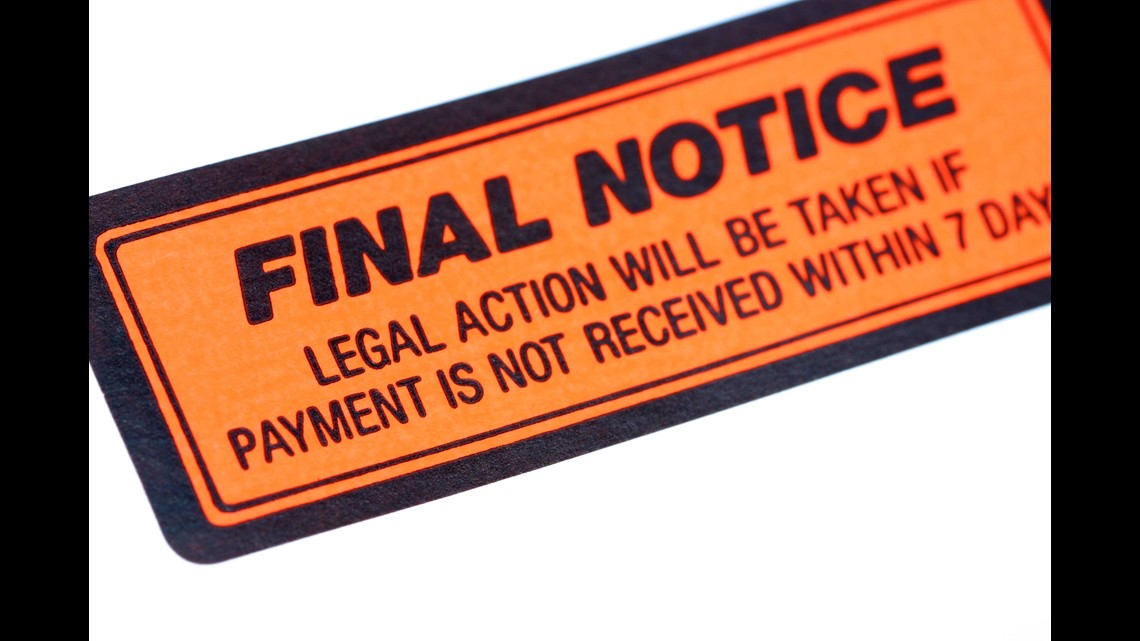Tens of millions of Americans are pursued by debt buyers, speculators who buy the rights to collect their overdue bills. Yet few consumers realize this growing segment of the collection industry may offer them a chance to slash their delinquent debts by as much as 75%.
A MagnifyMoney investigation examined the business practices of debt buyers as detailed in disclosures to their investors. Here’s how the game is played:
Buyers purchase massive bundles of unpaid consumer debts with face values that often total billions of dollars. Those are the bills that banks, credit card companies, and other creditors give up trying to collect.
Those debts are bought at deeply discounted prices, averaging roughly 8 cents on the dollar.
The buyers only expect to recover a fraction of the original amounts owed. Their target is to recover from 2 to 3 times more than they paid.
The bottom line: Debt buyers can turn profits that meet their goals by collecting merely 16% to 24% of the original face values. That knowledge can be useful to savvy debtors who choose to negotiate a settlement for less.
Debt buyers “absolutely” have more flexibility in negotiating with consumers, says Sheryl Wright, senior vice president of Encore Capital Group, the nation’s largest debt buyer. Encore offers most debtors a 40% discount to settle, according to the company’s website.
“There could be an advantage in terms of negotiating a favorable settlement,” says Lisa Stifler of the Center for Responsible Lending, a nonprofit consumer advocate. “Debt buyers are willing to – and generally do – accept lower amounts.”
Stifler warned that debtors should be cautious in all interactions with debt buyers and collectors. (See “Tips to fight back against debt buyers and debt collectors” later in this article.)
In the world of debt buying, the numbers can vary. The price of bad debt portfolios ranged from 5 to 15 cents on the dollar during the past two years, according to corporate disclosures of debt buyers. The variables include the age of debt, size of account, type of loan, previous collection attempts, geographic location, and data about debtors – plus shifts of supply and demand in the bad debt marketplace.
What remains constant is the debt buyers’ goal of recovering 2 to 3 times more than the purchase price they pay for the accounts.
It is a different business model than that of traditional debt collection agencies, contractors that pursue bills for a percentage of what they recover. In contrast, debt buyers may often be more willing to wheel and deal to settle accounts with consumers.
Debt buyers raked in $3.6 billion in revenue last year – about one-third of the nation’s debt collections, according to the Consumer Financial Protection Bureau’s latest annual report.
Information is scarce on the inner workings of hundreds of debt buyers who operate in the U.S. An accurate count is not available since only 17 states require buyers to be licensed.
Of the more than 575 debt buyers that belong to the industry’s trade association, only three are publicly traded entities required to file disclosures last year with the federal Securities and Exchange Commission. MagnifyMoney looked into reports from two of those companies and found telling insights into an industry typically secretive about its practices.


An “Encore” of unpaid bills
Encore owns nearly 36 million open accounts of consumer debt in the U.S. through its subsidiaries Midland Credit Management, Midland Funding, Asset Acceptance, and Atlantic Credit & Finance.
During 2016, Encore invested $900 million to buy debt with a face value of $9.8 billion – or 9 cents per dollar. On average, the corporation recovers 2.5 times more than it pays for debt portfolios – the equivalent of 22.5 cents per dollar owed, according to its annual report to the SEC.
In that disclosure, the San Diego-based operation details how it tries to get debtors to pay.
Encore boasts that its proprietary “decision science” enables it “to predict a consumer’s willingness and ability to repay his or her debt.” It obtains “detailed information” about debtors’ “credit, savings or payment behavior,” then analyzes “demographic data, account characteristics and economic variables.”
“We pursue collection activities on only a fraction of the accounts we purchase,” stated Encore. “Consumers who we believe are financially incapable of making any payments … are excluded from our collection process.”
The rest of the debtors can expect to hear from Encore’s collectors. But the company knows most won’t respond.
“Only a small number of consumers who we contact choose to engage with us,” Encore explained. “Those who do are often offered discounts on their obligations or are presented with payment plans that are intended to suit their needs.”
While the company offers most debtors discounts of 40% to settle, relatively few take advantage of that opportunity.
“The majority of consumers we contact do not respond to our calls and letters, and we must then make the decision about whether to pursue collection through legal action,” Encore stated. In its annual report, the company disclosed it spent $200 million for legal costs last year.
In a written response to questions from MagnifyMoney, Encore refused to reveal the number of lawsuits it has filed or the amount of money it has recovered as a result of that litigation.
“We ultimately take legal action in less than 5% of all of our accounts,” says Wright. If Encore has sued 5% of its 36 million domestic open accounts, the total would be roughly 1.8 million court cases.
Tips to fight back against debt buyers and debt collectors
All types of bill collectors have a common weakness: They often know little about the accounts they chase. And that’s a primary reason for many of the 860,000 consumer complaints against collectors last year, according to a database kept by the Federal Trade Commission.
Be sure the debt is legitimate first
In dealing with collectors, you should begin by questioning whether the debt is legitimate and accurate. You can also ask who owns the debt and how they obtained the right to collect it.
In 2015, Portfolio agreed to pay $19 million in consumer relief and $8 million in civil penalties as a result of an action by the CFPB.
“Portfolio bought debts that were potentially inaccurate, lacking documentation or unenforceable,” stated the CFPB. “Without verifying the debt, the company collected payments by pressuring consumers with false statements and churning out lawsuits using robo-signed court documents.”
One unemployed 51-year-old mother in Kansas City, Mo. fought back and won a big judgment in court.
Portfolio mistakenly sued Maria Guadalujpe Mejia for a $1,100 credit card debt owed by a man with a similar sounding name. Despite evidence it was pursuing the wrong person, the company refused to drop the lawsuit.
Mejia countersued Portfolio. Outraged by the company’s bullying tactics, a court awarded her $83 million in damages. In February, the company agreed to settled the case for an undisclosed amount.
Challenge the debt in writing
Within 30 days of first contact by a collector, you have the right to challenge the debt in writing. The collector is not allowed to contact you again until it sends a written verification of what it believes you owe.
Negotiate a settlement
If the bill is correct, you can attempt to negotiate a settlement for less, a sometimes lengthy process that could take months or years. By starting with low offers, you may leave more room to bargain.
Communicate with collectors in writing and keep copies of everything. On its website, the CFPB offers sample letters of how to correspond with collectors.
As previously noted, debt buyers generally have more leeway to negotiate settlements since they actually own the accounts. A partial list of debt buyers can be found online at DBA International.
In contrast, collection agencies working on contingency may be more restricted in what they can offer. They need to collect enough to satisfy the expectations of creditors plus cover their own fee.
As part of a settlement, the debt buyer or collector may offer a discount, a payment plan allowing the consumer to pay over time, or a combination of the two.
“Through this process, we use a variety of options, not just one approach or another, to create unique solutions that help consumers work toward long-term financial well-being and improve their quality of life,” says Encore’s Wright.
A settlement doesn’t guarantee the debt will be scrubbed from your credit report
To encourage settlements, Encore recently announced that it would remove negative information from the credit reports of consumers two years after they paid or settled their debts. Traditionally, the negative “tradelines” remain on credit reports for seven years.
“We believe the changes in our credit reporting policy provide a tangible solution to help our consumers move toward a better life,” says Wright.
However, Encore’s new policy does nothing to speed up the removal of any negative information reported by the original creditor from whom the company bought the debt.


Check your state’s statute of limitations on unpaid debts
Before any payment or negotiation, check to see if the statute of limitations has expired on the debt. That is the window of time for when you can be sued; it varies from state to state and generally ranges from three to six years.
If the statute of limitations on your debt has expired, you may legally owe nothing. If the expiration is nearing, you can have extra leverage in negotiating a settlement. But be careful: A partial payment can restart the statute in some states and lengthen the time a black mark remains on your credit record.
Respond promptly if the company decides to sue
If you are sued over the debt, be sure to respond by the deadline specified in the court papers. If you answer, the collector will have to prove you owe the money.
If you don’t timely answer the complaint, the burden of proof may switch to you. A judge may enter a default judgment against you – or even sign a court order to garnish your paycheck.
Seek help from a lawyer or legal aid service if you have questions, but be careful of where you turn for help. The CFPB warns consumers to be wary of debt collection services that charge money in advance to negotiate on your behalf. They often promise more than they can deliver and get paid no matter what happens.
MagnifyMoney is a price comparison and financial education website, founded by former bankers who use their knowledge of how the system works to help you save money.

